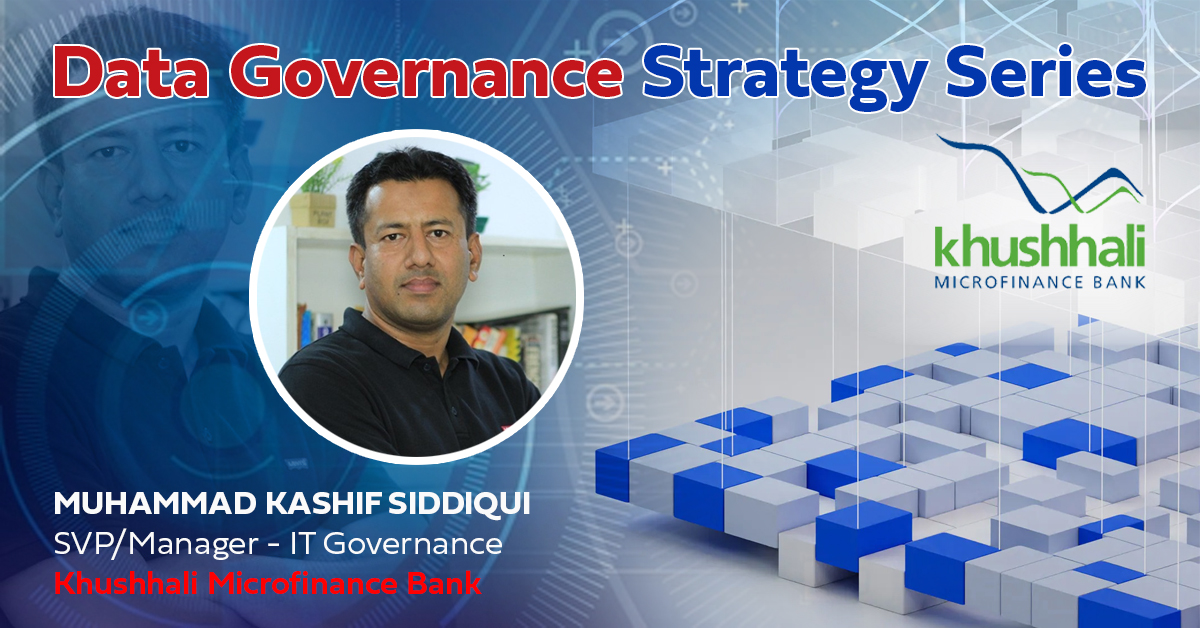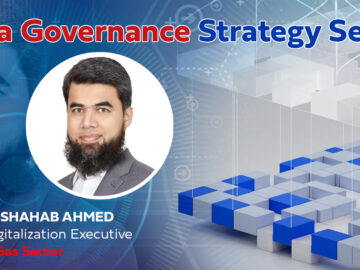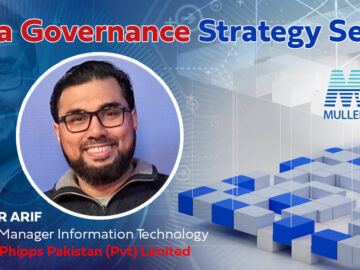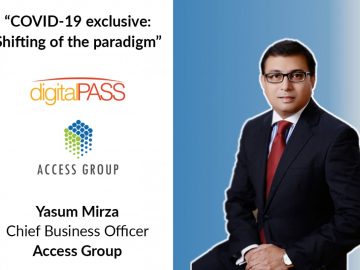
M. Kashif Siddique, SVP/Manager IT Governance at Khushhali Microfinance Bank Limited in Pakistan explains in an interview with DailyNewsPK, how we can ensure data security and what are the right steps to establish a data strategy.
Q. How crucial is setting up a data strategy for the growth of an organization? And how are you using data to accelerate performance?
A. In today’s age of information revolution, strategizing without considering your patterns of data is like ‘taking a blind leap forward of faith’, the odds could be either way.
To keep the odds on your side, you need to be ultra-pragmatic, thus you need to interlink data with your overall business strategy, for that you need to have data strategy in place that would align with overall business strategy and assure deliverance.
Q. How can you identify privacy, security and governance risks when it comes to data security? And how to handle such risks?
A. There is a complete risk management lifecycle for every type of risk encountered by an enterprise which starts with planning, identification, quantitative and qualitative analysis of risk and responding to them. This life cycle is managed with an artifact called risk register.
Besides, today, every business does a SWOT analysis, which enables it to perform a thorough scanning of both internal as well as external environments.
Moreover, exercises such as vulnerability assessments, compliance self-assessments and regulatory assessments are also crucial. Last but not the least method is benchmarking with global standards, industry best practices and/or regulatory frameworks to ensure minimum risk.
Q. How Machine Learning and Cloud are making it easier for companies to adapt to new challenges?
A. With the mass adoption of machine learning and cloud computing techniques, there is a vast amount of knowledge base being generated in industry and peers are trying to follow the forerunners and technological adoption is happening at a rapid pace.
Q. How to modernize data governance to help organizations compete in the knowledge economy? And how do you see in the near future the model of data driven organization?
A. Knowledge is a byproduct of human intellect; thus, your entire generation needs to be oriented with the significant role of knowledge in creating value of economic exchange. I believe that any model regarding data driven organization must give regard to core the principles such as:
Ensuring transparency
Maintaining sustainability
Governance structures in place to assure a process/standard compliance.
Risk mitigation controls in place.










